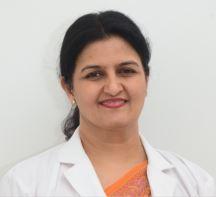
Looking for information on emergency contraceptive pills and don’t know whom to ask or how to ask. Dr. Ranjana Dhanu, Consultant Obstetrics & Gynaecology, Hinduja Hospital answers these questions.
Emergency Contraception pills are used when a woman has had unprotected sex. This pill is commonly called the "morning-after pill”. As per World Health Organization1, Emergency Contraceptive Pills (ECPs) can prevent over 95% of pregnancies when taken within the stipulated time- five days (120 hours) after the intercourse.
1. What are the side effects of ECP?
ECP has a hormone content in a very high dose which makes the uterine lining hostile for implantation of the fertilized egg. It is actually interception wherein the egg and the sperm are presumed to have met and this method just prevents implantation. Because of the high dose of the hormones, the person will complain of severe bloating and nausea.
2. Will I start bleeding immediately after taking the ECP?
No, but you could have a period earlier than your due date due to the exaggerated response of the uterine lining which grows excessively.
3. What is the dosage?
Typically, the recommended dosage is one tablet within 72 hours of unprotected sex.
4. Can I take it more than once in a menstrual cycle?
It is best not to contradict nature. The fact that it is called as an emergency contraception means it should be taken under medical supervision and judiciously.
5. Can I take it multiple times in a year? Is there a limit?
While there is no specific limit, it is advised not to take it multiple times a year because this particular treatment can only be taken under medical supervision and can cause severe hormonal imbalance and erratic uterine bleeding.
6. Is the hormone action of ECP different from the hormone action of abortion kit?
Yes, the ECP contains high dose of progesterone (Levonorgestrel) and the abortion kit contains anti-progesterone (RU-486) which dislodges the implanted fertilized egg.
7. Can I get pregnant every time I have intercourse? Can I get pregnant if I have sex during my periods?
The chances of getting pregnant with an unprotected act are higher between the 11th-17th day of the cycle which is termed as the fertile period or the period of maximum probability of conception. It is not unlikely to get pregnant in case if an individual ovulates early or late in irregular cycles and hence it is always better to practise a definite form of contraception to prevent an unwanted pregnancy.
While you can have sexual Intercourse during period, the chances of HIV and sexually transmitted infections is higher. So please use a condom2.
8. Is it better to take a chance and have an abortion rather than take ECP each time I have unprotected sex?
An abortion is physically and psychologically traumatising and not better than ECP. However a more definite form of contraception like cyclic pills, IUDs or condoms can be relied upon rather than taking ECP.
9. How effective is the pull out method?
The withdrawal technique (pull out method) has a failure rate of more than 30% as the smegma has enough sperms to repopulate the world. With such a high failure rate, it is not advisable to practise a withdrawal technique as a means of contraception.
10. Is abstinence based on the 28 day cycle reliable?
A 28 day cycle means a patient is having a regular cycle bleeding and she is probably ovulating between the 11th and 17th day. But, there could be failures if the couple has intercourse around the 9th or the 10th day or 18th or 19th day of the cycle, since the sperm and the egg remain viable in the tract up to 72 hours. Hence, it is better to use birth control methods like Oral Contraceptive Pill (OCP) or condom.
Related Reading: Are birth control pills safe?
11. Can I get pregnant if I am in my mid-50s?
The fertility potential of the woman reduces at the age of 35 years. The fertility potential of the patient is assessed by evaluation of Anti-Müllerian Hormone (AMH).
It is extremely rare for the patient above 50’s to get naturally pregnant with an unprotected intercourse, since the AMH diminishes drastically at that age, but there could be a chance rarely for a woman to conceive at that age.
Dr. Ranjana Dhanu, Consultant Obstetrics & Gynaecology, Hinduja Hospital, Khar

1. WHO: Emergency contraception






